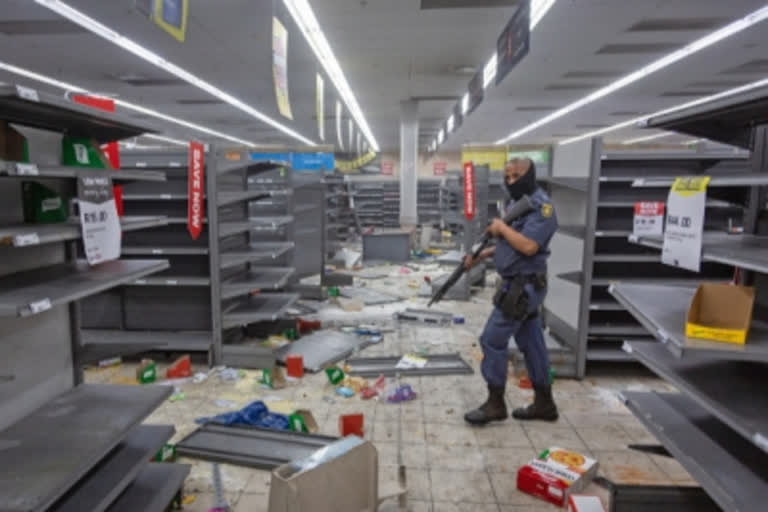Johannesburg (South Africa):South African Minister of Justice and Correctional Services Ronald Lamola unveiled directions to fast track trials of those who were involved in the looting and public violence since July 7. The directions demand that cases of public violence, public disorder and massive looting which took place recently be expedited, reports Xinhua news agency.
"These directions will enable our courts and the justice system to respond effectively and appropriately to deal with cases flowing from the recent unrest and public violence. We are ensuring that nothing disrupts the processing of these matters and that the public can have trust and confidence in our criminal justice system," Lamola said on Saturday. "The directions provide for, among other things, the postponement of cases through audiovisual links and the compilation of a priority roll at each court which will enable the courts to prioritise the hearing of priority cases which include gender-based violence and sexual offences, corruption cases, cases involving children and contravention of Covid-19 regulations."
Lamola said, if necessary, additional dedicated staff including from a pool of experienced retired magistrates and prosecutors will be called upon in order to fast-track these cases where hundreds of arrests have already been effected. More than 2,500 people have been arrested in connection with the violent protests in the country in the past week over former president Jacob Zuma's imprisonment. The death toll has increased to 212.
Read: As Indian expats suffer silently, Centre reaches out to South Africa
South Africa is in a state of chaos and unrest ever since the arrest of former President Jacob Zuma on July 7. Zuma, once known for his fight against apartheid, was imprisoned in the Estcourt Correctional Centre for 15 months for disobeying court orders. He did not testify before the judicial commission that was investigating accusations of corruption against him between 2009-2018.
Several South Africans hit the streets to protest against the incarceration of Zuma and soon, those demonstrations turned violent against Indian-origin people. Images and videos of rampant arson, shooting and loot emerged as the violence engulfed the streets of Gauteng and KZN provinces. Interestingly, two-thirds of the 1.4 million-strong Indian-origin population of South Africa lives and works in KZN, mostly in Durban.
